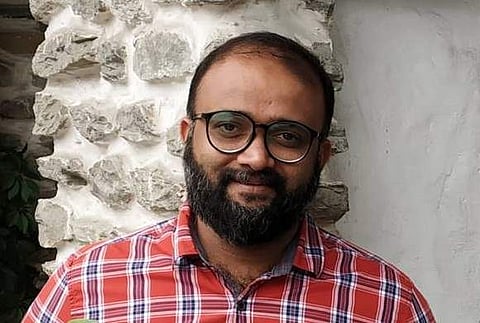People who aren't smart enough speak ill about others on social media: Prasanth Alexander
It's been 17 years since Malayalam actor Prasanth Alexander made his acting debut, through veteran director Kamal's Nammal. And this year, the former television anchor will be making his Bollywood debut through Rajkumar Gupta's India's Most Wanted. He plays a South Indian intelligence officer who is part of Arjun Kapoor's five-member team on the lookout for a lethal terrorist.
Excerpts from an interview:
How is the preparation process for a Hindi film different from that for a Malayalam film?
The film began rolling on August 10, and ten days before that, I had to take part in a preparatory camp. Everything we were supposed to do for the film, including a script reading session, was mentioned in the contract given to us. This is not normally the case when actors play small supporting roles in Malayalam cinema. But in Mumbai, every actor gets a script, and they're asked to be tight-lipped about it.
What did you learn from the experience?
Rajkumar Gupta has been working on the script for three years, and he wanted us to treat the material responsibly. His strong conviction compelled us to give our best. Initially, I wondered why it was necessary for all us to take part in a group reading session instead of individual readings. But when Arjun asked about some doubts which never crossed your mind, I started to realise the importance of such sessions.
What's Arjun's working process like?
He is a committed filmmaker, who is game for anything. He is not concerned about the glamorous side of cinema because he was born into it.
What did Rajkumar Gupta do to make the actors comfortable?
He asked us to remember the lines, but also gave us the freedom to improvise whenever we can, and continue doing it. He wanted us to make the performances as natural as possible. He said, 'There may be instances where I get angry with you but that's because I have so many things to manage. But don't let that deter you. Continue doing what you do, because it would be a loss for me if you didn't.' That was a huge relief for us. He had a detailed printout of the scenes we were going to shoot on a particular day. As I'm already used to working with limitations in Malayalam cinema, I was able to work much more easily in an environment like that.
How come such reading sessions are not being practised in Malayalam cinema?
Doing something like that here would take a lot of time and money. And one can't really blame them because of the budgetary limitations. Imagine the food and accommodation expenses required for a five-day script reading session. You can cover two days of shoot with that money (laughs).
You once said you don't ask anyone for roles.
It's true. Some of my friends are now directors, but I don't ask them for roles. And some others like Martin Prakkat, Haneef Adeni, and Rohith Vs called me to act in their directorial debuts. I don't look at the duration of the role. Surviving in the industry is a must for me and I can't think about staying away from films.
Can you tell us about the tough times you faced in cinema?
I wasn't getting any offers for four-five years. I and my wife survived on meager savings. That's when I started working on a script and also took up an assistant director job to keep myself occupied. But I don't really see it as a struggle because I enjoy being part of films. Also, I can't blame anyone because I didn't take the initiative to ask for roles.
There is so much energy in most of your performances. In MadhuraRaja, you danced in an item song with Sunny Leone. Have you always been this confident?
I actually used to be very shy as a kid. But once I started taking part in school culturals I realised I had the confidence to perform in front of people. My school friends weren't surprised when I became an actor. (laughs)
Many found your 'trespassing an open gate' line in MadhuraRaja offensive.
I was a bit hesitant to say that line first. But a line can have different meanings. I see it this way: This is an MLA who is supposed to represent the people. They elected him because they felt he was good; they were impressed by whatever he did in front of them. But he also happens to be someone with an ugly mindset. Why did people elect someone like that? The whole thing has a satirical bent to it because that's exactly what is happening in the world right now.
Do these negative comments bother you?
Of course, it does. Back in the old days, people argued face to face, in places like tea shops. Now the platform has shifted to social media. People who can't face challenges or aren't smart enough to take part in a debate, speak ill about others on social media. I received a lot of positive messages about my performance in MadhuraRaja but then there are also people who say things like, "Thaan enthoru over aado (you went overboard in this)." A comment like that can affect your confidence, which may then reflect in your performance in the next film. We may become so rigid and then get upset with the director. We are human beings too. We get depressed too. However, I'm okay with constructive criticism. They help you evaluate yourself.

